Queen of the drag world, king of the kennels: The loving life of Paul O’Grady
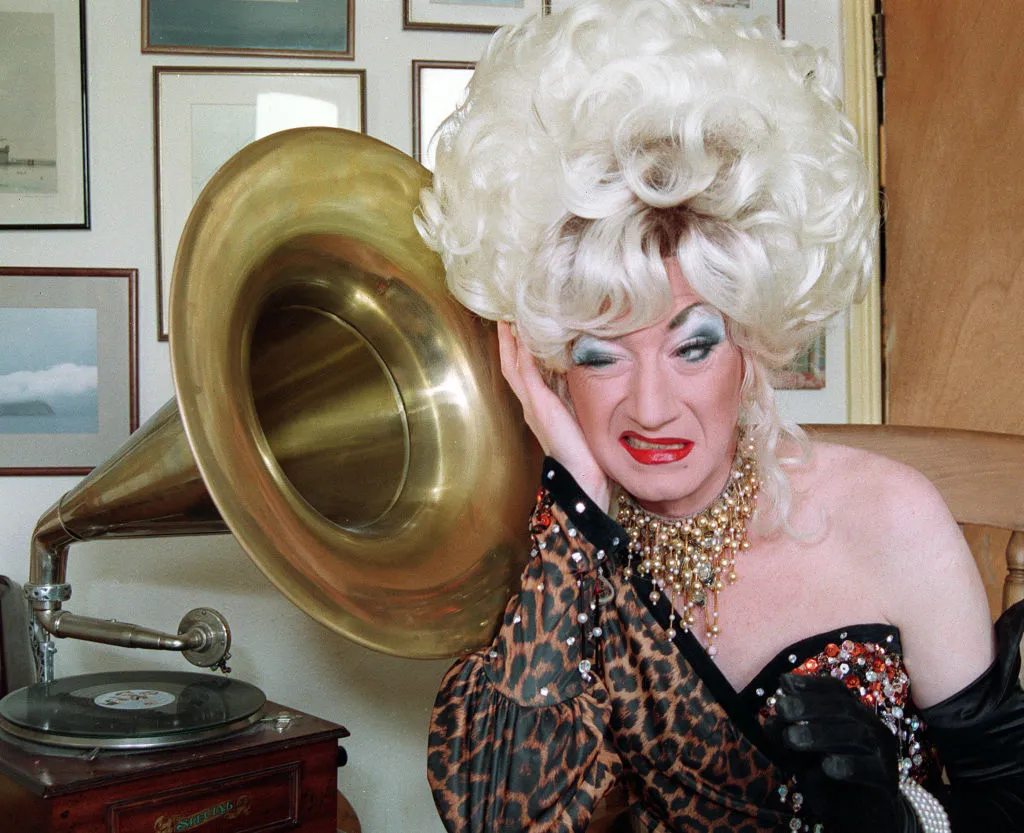
There was nothing on this earth like an encounter with Lily Savage
It could have been 1987, or maybe even 1988... somewhere back in the dark ages, when proper drag acts played in properly battered old pubs to audiences made up largely of improper men without any hen parties dragging them down. It was crowded and hot, the air thick with the fug of cigarette smoke, poppers and last Sunday’s lunch. I was wedged in the middle of the crowd, bookended by braver friends at what I thought was a safe distance from the tiny stage, where viper-tongued drag queens in high heels, high wigs and sequinned frocks spat venom at those tough enough to take it. Until...
“What’s that sound? It sounds like somebody praying...” The voice — gritty, cynical and unmistakably Scouse — was amplified through a mobile microphone over feedback from the speakers, and came from somewhere behind me, but perilously close. “What is it? Who’s praying? Is that our Vera, trying to bribe me to go to church again?”
The Post is a reader-supported publication. To receive new posts and support my work, consider becoming a free or paid subscriber.
Closer and closer the voice came, rattling on about the futility of prayer and the discomfort of gusset-chafe and the perils of mistaking acne cream for lubricant in the dark. Ha ha ha, funny funny funny. Until the voice was right behind me, at my shoulder, breathing down my neck... “Ah, there you are! I can hear you now, praying to God that I don’t get close enough to ask what the fuck you’ve done with your hair!”
Humiliated, dumbstruck, terrified: I had just survived my first encounter with Lily Savage.
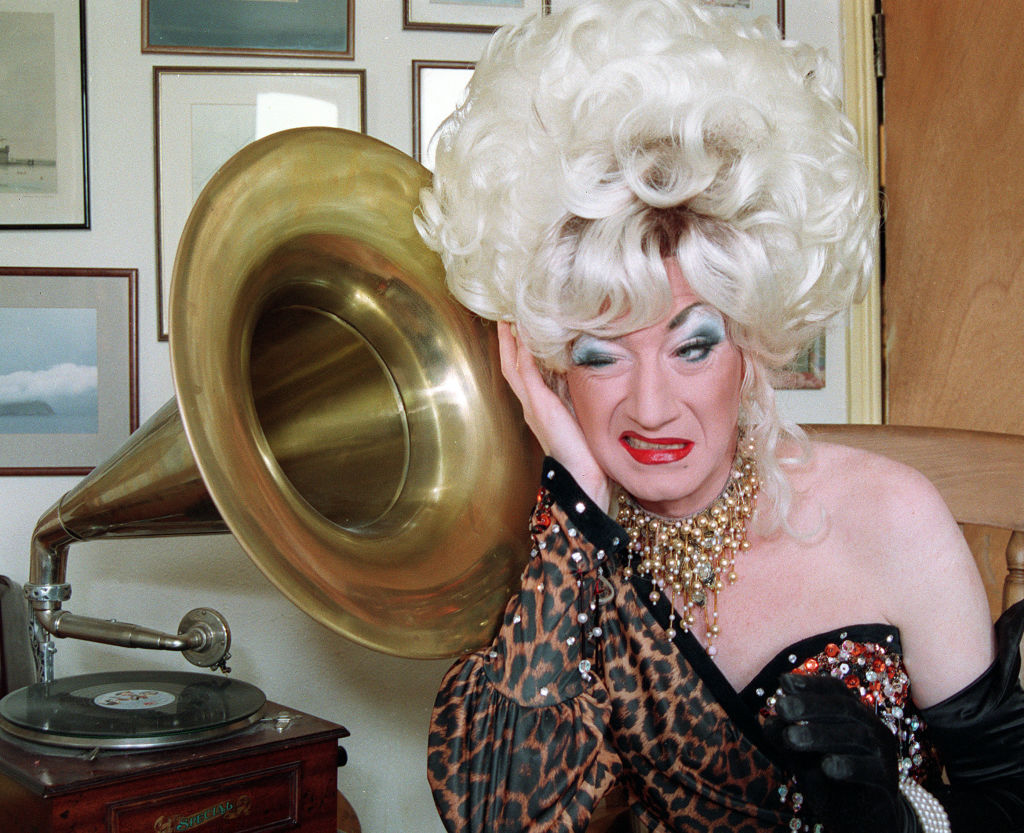
Lily, a stage persona played by Paul O’Grady, was the epitome of the “exasperating, irritating, vacillating, calculating, agitating, maddening, infuriating hag!” that so riled Professor Higgins in My Fair Lady, far removed from the neat, sweet, unchallenging, simpering handmaidens that magazines like Woman’s Own, back in the 1980s at least, told all women that was how they should behave. In Lily, women and men alike found a sort of role model — and while I never dreamt I could be like her, I sure as hell wanted her defiance, her bravado, her wit, her wisdom... and her wigs.
O’Grady was beyond fabulous at being Lily — but he was even better at being himself: compassionate, humane and kind to the core, passionate in his defence of the defenceless... and hilariously, uniquely witty. And this week we lost him. He has died unexpectedly aged 67.
O’Grady was loved from the start of his life. “When I look back on my childhood, I have no bad memories,” he told his biographer Neil Simpson in 2008. “Our family was loving and full of affection. I never knew what divorce was until I moved to London. I was an indulged child and completely protected from anything bad.”
Born in Tranmere in 1955 to Irish immigrant parents Patrick (Paddy) and Mary (Molly, nee Savage) Grady (the O’ was added in a Royal Air Force paperwork error), he arrived more than a decade after his two older siblings. As a pre-teen, he was an altar boy until he was dismissed for laughing during a funeral service. Following in the footsteps of Popeye, his childhood hero, he joined the Sea Cadet Corps and fought in their boxing club, developing a lifelong love of the sport.
After leaving school O’Grady went through various jobs: clerical assistant, bartender, hotel worker, abattoir accountant, children’s home carer. There was a brief affair with his best friend Diane, resulting — when he was just 18 — in a daughter (Sharon) in 1974. He found out that he would become a father in the same week that both his parents had heart attacks; Molly lived another 14 years, but Paddy died. O’Grady was convinced that his dad died of a broken heart, thinking his wife had already gone.

As one friend put it, O’Grady emotionally and intellectually lived — and observed — life. You can read chapter and verse about that life in Neil Simpson’s biography, in impeccable first-person detail in one of O’Grady’s four autobiographies, or in one of the hundreds of obituaries that are trending right now, most of them sincere, respectful and heartfelt — others from the same news outlets who, before O’Grady died, were publishing opinion pieces on why LGBTQ rights have “gone too far”, or supporting protests against Drag Queen Story Hour, or fidgeting about police cars being wrapped with rainbow flags during Pride.
There are plenty of mainstream Paul O’Grady achievements and victories to celebrate and remember at the untimely end of a life very well lived without even mentioning the words “gay club”. He was a quick-witted prime-time TV quiz show compere; a vibrant teatime chat show host; a stage show musical superstar; a documentarian; a BBC Radio 2 DJ of 14 years; a tireless supporter of multiple charities and, of course, a tireless devotee of the Battersea Dogs Home, a champion of rescue animals worldwide. But denying O’Grady’s roots (and God knows, Lily had roots) only serves to highlight the media airbrushing-according-to-bias that he fought against throughout his life.
While still living and working in Birkenhead, O’Grady attended regular meetings of the Campaign for Homosexual Equality, and supplemented his income working as an occasional barman at both The Bear’s Paw (one of Liverpool's longest-established gay pubs, off North John Street, latterly renamed The Harrington Bar) and Yates’s Wine Lodge on Great Charlotte Street. “Yates’s was full of Lilys: hard, hard women with sharp nails, sharp tongues, and blunt, brutal lives,” O’Grady recalled in a 2012 interview with the Guardian; “I watched them, and I listened to them, but I had no idea that I would one day make a career out of being one of them.”
Whether O’Grady had an idea of what his future held or not, he moved to London in 1976, where he worked in a west London gay club, The Showplace. In 1977, he married his Portuguese best friend to save her from deportation: “We were married for 28 years, and only divorced in 2005 because we lost contact years ago,” O’Grady said recently. “It was like a real-life Corrie storyline.” Ah no, Paul: your own real life was way, way more enthralling than that.
While working at The Showplace, O’Grady took a job as a peripatetic care officer for Camden Council. “If a single mother had to go to hospital, I’d move in and look after her kids so they didn't have to go into care,” he recalled, in the 2013 two-part BBC series Paul O’Grady’s Working Britain. “Often, there’d be a drunken father turning up at 2am, wanting to know who I was, and I’d say, mincing slightly, ‘I’m from Camden Council!’ and he’d smack me. So I’d be going around with a black eye, nits from the kids and scabies.” O’Grady cited such experiences as partial inspiration — along with his female relations and the women he watched at Yates’s Wine Lodge — for Lily Savage: an avenging angel, giving voice to the anger that he was unable to express... and Lily was a mistress of the art of voicing anger, wherever, whenever and to whomever that anger needed to be voiced.
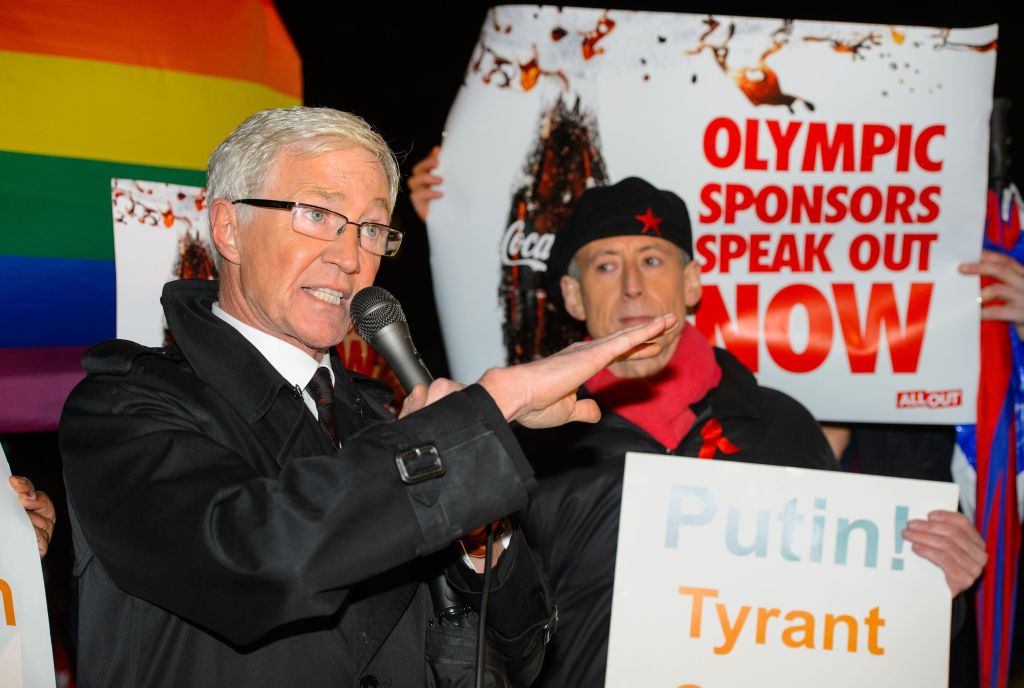
Savage — an abrasive, brazen, bottle-blonde single mother from Birkenhead — made her debut at The Black Cap in Camden in October 1978. All kinds of everything went on for Paul and Lily between then and the start of his legendary eight-year residency at The Royal Vauxhall Tavern, which began in 1984. There was a tour of northern England with drag act The Playgirls, and a solo show at another gay pub, The Elephant and Castle. He did a brief stint working as a barman and waiter in a brothel in the Philippines, and an even briefer stint back in Birkenhead, where he moved back in with mum Molly and spent his £33 weekly income from the DSS on “fags, wig bleach and sherry”.
Once back in London and established at The Royal Vauxhall Tavern, the world started opening up for Paul and Lily... even though the world they inhabited started closing in and shutting down around them.
The AIDS iceberg hit the gay community harder than one of Lily’s spike-heel patent leather boots, flung from a distance with a clear aim, ever could. “It horrified me, especially with close friends because they had what was called ‘the look’, with big eyes and teeth that started to get bigger, and you’d know,” he said, when interviewed by Attitude to mark the 50th anniversary of the decriminalisation of homosexuality in England and Wales. “And the bravery of these men, who’d try and make light of it, and then they’d crack a little bit... and a week later they’d be in hospital, and a week later they'd be dead.”
O’Grady used his centre-stage spotlight to speak out against what he saw as Thatcher’s homophobic government, and publicly rallied against its Section/Clause 28 policy that aimed to “prohibit the promotion of homosexuality” while regularly doing charity fundraisers for HIV/AIDS research, and performing in a play about the disease.
“Paul was backstage at the Royal Vauxhall Tavern one evening in 1987 when the police burst in,” Peter Tatchell recalled. “This was at the height of the AIDS panic and the police were all wearing rubber gloves because they thought you could get HIV by touching a gay person. Paul took one look at the gloves and quipped to the officers: “Oh good, have you come to do the washing up?”
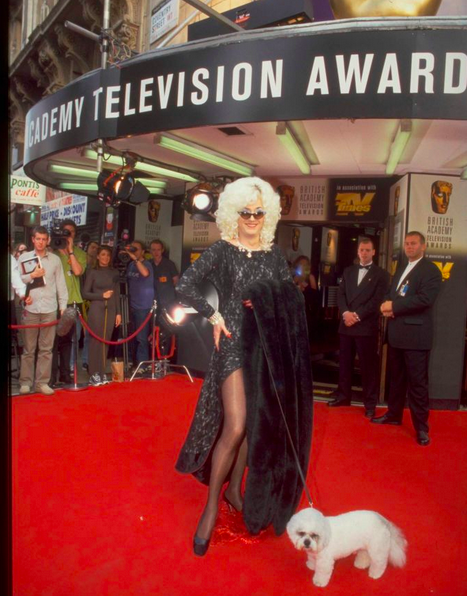
Lily occupied the space where Vaudeville traditions met Carry On-style non-sensibilities. Picking up the mantle of Danny La Rue, the Irish performer, O’Grady took drag — an area of show business previously regarded as seedy, and sinisterly sexually suspect — and dragged it to art-form heights in a mainstream gallery.
Liverpool-born drag artist Danny Beard, winner of RuPaul’s Drag Race UK Series 4, remembers being a child and watching O’Grady as Lily. “It was hilarious as a young gay boy to sit there and see something of yourself on television; it meant things were OK,” they told BBC News this week. “He was a trailblazer who took drag to the mainstream and really set the way for people like me to be able to do our jobs.”
O'Grady’s Lily had a cameo in Liverpool soap opera Brookside, presented an episode of Top of the Pops, and appeared in adverts, including one for Pretty Polly tights and another for a bingo company. There was a late-night Channel 4 series, a leading role in the musical version of Prisoner Cell Block H, a Sunday evening chat show, appearances on daytime cookery shows, and a starring role as Miss Hannigan in the West End revival of Annie — oh, there was loadsa O’Grady’s Lily, everywhere.
Why “O’Grady’s Lily”, and not just “Lily”? Because it’s what O’Grady would have wanted. “Barry Humphries played the character of Dame Edna Everage, but was never called a drag act, or referred to solely as Dame Edna in professional terms, because he’s a heterosexual male,” he wrote in his biography. “But I’m called ‘her’, or just ‘Lily’ because I’m a gay man. It’s homophobic and it’s wrong as there’s nothing remotely sexual about what I do. I dress up as a woman for financial purposes, nothing else. I am Paul O’Grady.”
Despite O’Grady’s Lily being responsible for the hugely successful revival of BBC quiz show Blankety Blank (for which the producers allowed him to ad-lib as Lily rather than follow a script), which attracted a regular audience of nine million viewers and led to ITV offering O’Grady a two-year, £1m deal to take the show over to the other side (which he accepted), O’Grady hung Lily’s wig up for the last time in 2004. To me, it was the drag world equivalent of David Bowie killing off Ziggy Stardust in 1973. “Lily’s material wouldn’t work in the modern day”, was all O’Grady offered by way of explanation. It was the end of an era — but also the start of a new one.
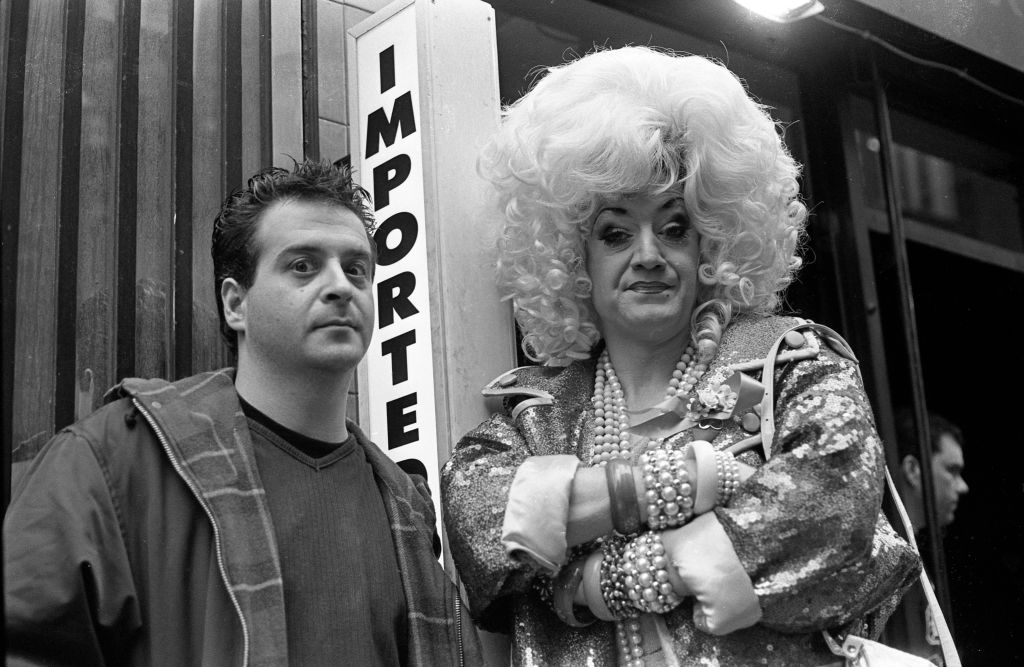
The Paul O’Grady Show aired at teatime every weeknight from 2004 to 2015, and flitted from ITV to Channel 4 and back to ITV again, with some runs of the series produced by O’Grady’s own production company Olga TV (named after one of his dogs). The show featured talking animals and rambling monologues, with his dog Buster on the desk for the start of every show, and celebrity guests in the hot seat each week. It was exuberant but comforting; unruly, heartwarming and expansive — the epitome of multi-faceted light entertainment.
In 2015, two days before O'Grady's 50th birthday, his closest friend, manager and former lover Brendan Murphy died after being diagnosed with a brain tumour. “I’d lost my best mate, someone who’d been in my life for 25 years and saw me through the days when I was lucky to earn £50 for standing on a beer crate in the corner of a pub telling jokes,” he said. “Murph and I were like brothers: joined at the hip, thick as thieves. It transcended any sexual relationship we’d had; it was a partnership, a double act: Emma Peel and Steed, Laurel and Hardy.”
But O’Grady wasn’t destined for the single life; having dated him for 11 years, he married former English National Ballet dancer Andre Portasio in 2017. “Our relationship just crept up on us,” O’Grady — always a master of the art of the understatement when talking about his personal life — wrote in one of his biographies. “It took us by surprise when we were least expecting it.”
Between 2017 and 2019, O'Grady hosted a Channel 5 revival of the iconic 1990s dating show Blind Date, stepping into his close friend of 20+ years Cilla Black’s shoes two years after she’d died. Although he said he was “honoured” to have been chosen to host the revamped show, O’Grady later admitted that it felt odd. “I kept thinking,” he once told an interviewer, “I’m turning into Cilla!”
But in the last decade O’Grady had been truly comfortable presenting ITV’s reality documentary series For The Love of Dogs, set in Battersea Dogs and Cats Home and giving him what he called his “real home away from home”. “Hand on heart, this is one of the nicest jobs I’ve ever had”, he said, in the first episode. “This is a magical place.”
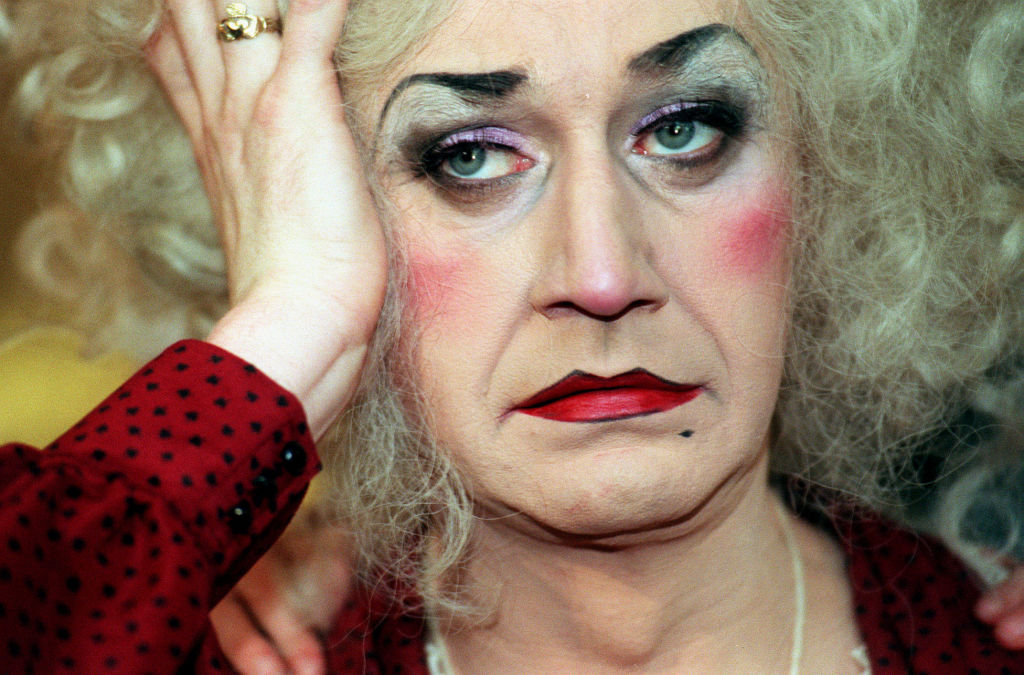
O’Grady was originally scheduled to film at the shelter for just six days, after which he stayed on as a volunteer for six months. At the end of the first series, he was invited to become an ambassador for the home. By this time, he’d also personally rehomed Eddie, a Chihuahua Jack Russell-cross puppy — the first of six former Battersea residents who went on to live with O’Grady in his Kent farmhouse. Over 10 series and 86 episodes including A Royal Special to celebrate the home’s 160th birthday in 2022 and featuring Camilla, Queen Consort, O’Grady was the undisputed leader of the Battersea pack, and king of the kennel.
O’Grady infused every moment he spent at Battersea with a “bless ’em all” approach that went way beyond a philosophy around the animals alone; his penchant for championing the underdog was a lesson in love.
And as we’ve seen in recent days, O’Grady was loved. Moving tributes from his many celebrity friends, the multiple people he worked with, the heads of the charities he supported and, quite simply, people like you and I, who saw him as one of us, have dominated the airwaves; heck, even the Royal Family posted a touching tribute to him on Twitter. The Royal Vauxhall Tavern held an official “minute of raucous applause” instead of the traditional moment of silence for their original queen, and bouquets and bags of dog treats are piling up outside O’Grady’s home.
As funny, brave and fearless as he seemed, O’Grady always thought that he’d die before his old mate Cilla. “I firmly believed that Cilla was indestructible, and I’d most definitely go first,” he said, as part of her eulogy; “I loved this lady, you have no idea. She was one of my closest friends, and I absolutely adored her.” Did Paul O’Grady have any idea how much we too thought Lily was indestructible, and how much he, as himself, was adored? Probably not; he was a star who always let us know that he kept his feet firmly on the ground. Ta-ra, Lily, and goodbye, Paul; life will be far less lively without you.
Paul O’Grady died of unknown causes on 28th March 2023. His husband Andre Portasio said he passed away “unexpectedly but peacefully”. He was 67.
The Post is a reader-supported publication. To receive new posts and support my work, consider becoming a free or paid subscriber.

Comments
Latest
Cheers to 2025
Searching for enlightenment in Skelmersdale
I’m calling a truce. It’s time to stop the flouncing
The carnival queens of Toxteth
Queen of the drag world, king of the kennels: The loving life of Paul O’Grady
There was nothing on this earth like an encounter with Lily Savage